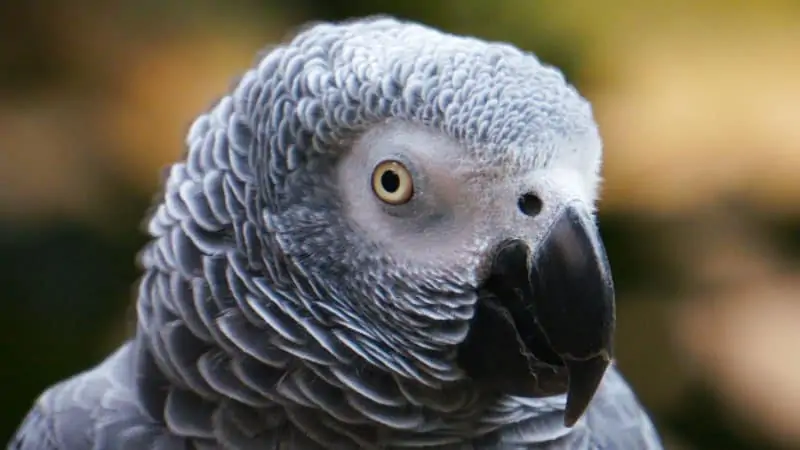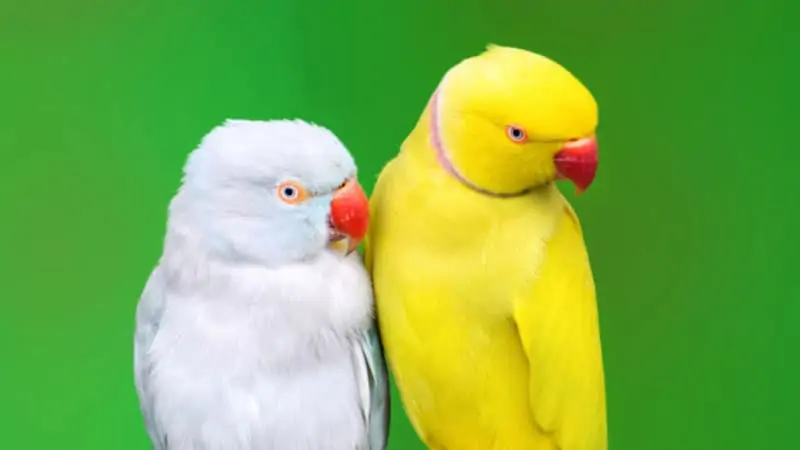Like humans, birds too can get car sick. The brain receives different signals as the eyes tell the bird that it is moving at high speed but the inner eye signals that it’s motionless. The effect is that your bird may feel disoriented and nauseated.
Your parrot can get car sick during travel due to speed of motion, changes in pressure, and exposure to external lights. You can reduce the likelihood of car sickness by not feeding your parrot, covering the side windows, providing home remedies, and showing a calm demeanor.
Not all parrots get car sick. Additionally, some will only feel car sick for the first few minutes while others may last much longer. There are no hard rules on how to spot the signs or manage car sickness in parrots, but this post outlines some of the most common effects and ways to manage.
Can Parrots Travel in The Car?
Parrots can comfortably travel in cars even though some may suffer car sickness. To make car travel easy for your parrot, you can:
Delay Fledging
According to the Avian Welfare Coalition, parrots are wild at heart even when born in captivity. Nonetheless, pet parrots are often taken from incubators and into the nursery then into cages in pet shops. The little chicks get to see light weeks before their counterparts in the wilderness even catch a small glimpse of sunlight.
Pet parrots then live their lives in the cage and end up fledging too early. The inner ear and flight feathers never fully develop. The parrot doesn’t get to test, fail, and test its leg strength as much as the wild parrot. They finally develop calculated flying skills.
The pet parrot never has to outfly predators or chase after prey. This could be one of the main reasons pet parrots hatched in nurseries are more likely to suffer car sickness.
Additionally, when breeders try to fly pet parrots too early, the chicks suffer minute stress fractures in their bones. This type of trauma is likely to create a psychological phobia in the young chick.
If possible, delay the fledging of your parrot when they hatch and you may possibly increase their resistance to car sickness.
Start Them Young

Once your parrots have fledged, get them used to car rides. For instance, find reason to take them along with you for short drives which last less than 30 minutes. Young chicks have a higher ability to develop resistance and immunity compared to adult birds.
Regular Rides
Even if you receive your parrot when it’s already an adult, get it used to riding in the car. Start with short drives and work up to longer ones. Most birds won’t get car sick on a short 5-minute drive around the block. Gradually increasing the distance and speeds gets your parrot used to car motion.
Cover the Sides
Most birds will only suffer car sickness when they look out the side windows and see the world zooming past. They seem not to feel the same effect when watching the world through the front windshield or the back window. Therefore, whenever you’re planning to drive with your birds, cover up the side windows.
Can My Parrot Get Car Sick During Travel?
It doesn’t happen to all parrots, but some become car sick. According to avian veterinarian, Dr. Brian Speer, car sickness is more common in younger birds than older adults. Birds born in captivity are especially prone to car sickness. Parrots can be sensitive to motion, temperature changes, and changes in air pressure.
Parrots can get sea sick due to:
- High speeds which may seem dizzying to the bird’s eye and inner ear.
- Changes in atmospheric pressure and altitude.
- Exposure to hot sunlight and bright vehicle lights.
- Separation anxiety if the bird is separated from some of its favorite people.
How Do You Keep Your Parrot from Getting Car Sick?
If your parrot is prone to car sickness, you may want to do the following before each car trip:
Don’t Feed the Parrot
Car sickness causes nausea. When the parrot has a full crop, the nausea will be worse. When on an empty crop, the parrot may still dry heave but that is likely to be less severe and last shorter.
Feeding Enroute

If you’ll be travelling for less than eight hours, don’t feed your parrot. Instead, stop every couple of hours to give some ginger water so the bird isn’t dehydrated. If the drive lasts longer than eight hours, then make a stop and feed the bird. Give fruit and veggies with high water content.
Take a 30-minute break after the parrot has eaten before you resume your journey. Feed a smaller than usual portion. You don’t want to resume driving while the parrot is still full.
Home Remedies
One remedy that seems to work with most birds is switching the water with warm ginger at least six hours before the journey begins. Other possible remedies are basil and peppermint.
Stay Calm
Your bird knows you and senses when you’re anxious or agitated. If you show signs of anxiety, your parrot may also develop anxiety. If you’re calm, the bird will sense everything is okay.
Empty The Cage
Remove all toys, swings, and any movable items from the cage before your trip begins. These are potential hazards in case of emergency braking and sharp curves.
Cover The Cage
Some parrots will still get car sick even after you cover the side windows of the car. In such cases, it would be better to drape a blanket over the bird’s cage.
Pack For Bird Last
Parrots are notoriously observant and will notice if you start packing its stuff. If you pack the bird’s stuff early this may build up anxiety. Pack up the bird’s toys and cage at the very last minute so they don’t have time to get worried.
Choose Smooth Routes
Car sickness gets worse if you’re traveling on rough backroads. Pick your routes carefully, opting for smooth highways over bumpy, potholed, or non-graded roads.

